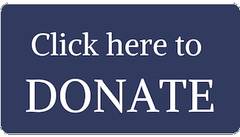“You are standing here today, all of you… atem nitzavim hayom kulchem” (Deuteronomy 29:9).
These could be the opening words of our Rosh Hashanah liturgy. Rosh Hashanah begins this Monday evening when Jews all over the world will gather to usher in our New Year, 5786. They are actually the opening words of this week’s Torah portion from Deuteronomy, N'tzavim.
Our text reminds us that all of the Jewish people, past, present, and future, stood together at Sinai as we entered into covenant with God. The key words are: we stood together. Age, gender, occupation, world-view, opinions, none of that mattered. What mattered was that we gathered as one people, in sacred connection and community. (In Reform congregations, we also read this passage on Yom Kippur morning, for its message powerfully resonates with the themes of the day.)
This year, these words take on added urgency. We are approaching the two-year anniversary of October 7th. Tragically, the war continues to rage. Hostages remain trapped in Gaza. Too many lives, Israeli and Palestinian alike, have been lost. The pain is ongoing. The destruction seems endless. At times, despair can feel overwhelming.
Some of my Israeli friends have spoken with anguish, fearing that without an end to this war, Israel’s very future hangs in the balance. Yet our tradition commands us never to surrender to despair, never to relinquish hope. We respond by standing together, by raising our voices for the return of the hostages, by supporting those working for security and peace, and by affirming that Israel’s future must be one of life, dignity, and hope.
Our covenant calls us to stand together, even in grief. Our tradition insists that tomorrow can be better than today. The High Holy Days remind us that renewal and repair, teshuvah and tikkun, are possible, not only in our personal lives but also in our world.
When we reconnect with friends, family, and loved ones, when we return to synagogue and to community, when we pray together and lift one another’s spirits, we embody the very essence of this week’s Torah portion, “atem n'tzavim hayom kulchem.” We stand together, and in so doing, we affirm life, resilience, and the possibility of peace.
The rabbis of old taught: “Al tifrosh min hatzibur, Do not separate yourself from the community” (Pirkei Avot 2:5). In standing together, we find strength. In community, we discover courage. In covenant, we hold fast to hope. Standing together, however, also means acting together. We may not be able to end the war singlehandedly, but we do have the ability to:
• Advocate for the release of the hostages, ensuring their plight is never forgotten.
• Stand up against antisemitism and hatred wherever it appears, strengthening the bonds of safety and solidarity.
• Work for peace by modeling in our own community the values of dialogue, compassion, and justice.
• Support organizations providing humanitarian aid to Israelis and Palestinians whose lives have been shattered.
These are sacred acts. With every step, we declare that the dignity of human life must never be diminished and that a world redeemed is within our grasp. As we enter these Yamim Nora’im, these Days of Awe, these actions take on urgent holiness, calling us to rise to the challenge of this moment.
My blessing for you as we enter 5786, this New Year:
May you find courage to stand with our people and strength to stand for peace.
May your heart remain open to hope, even in the shadow of despair.
May the connections you build renew your spirit and sustain our community.
May you feel God’s presence guiding you toward life, dignity, and justice.
And may we, together, help bring nearer the day when blessing, wholeness, and peace embrace all the world.
Shanah Tovah U’metukah, May this New Year be bright with promise, filled with the blessings of health, joy, sweetness, hope, and peace.
Shabbat Shalom!
Rabbi Sharon L. Sobel
Interim Rabbi
Temple Beth Or
rabbisobel@tboraleigh.org










